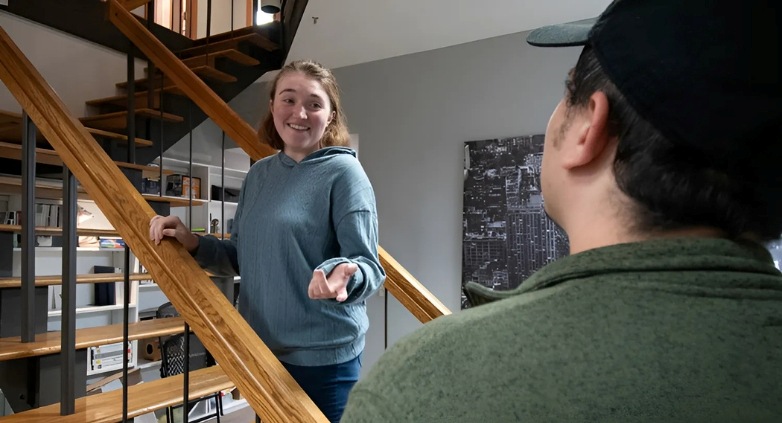
Families in Recovery – Rebuilding Trust and Support Together
Addiction affects the whole family, not just the individual. But recovery can too.
Family recovery refers to the healing process that family members go through when a loved one is recovering from addiction. It involves emotional support, setting healthy boundaries, and often participating in counseling or educational programs to rebuild trust and communication.
Read on to explore how families can heal together and play an active role in addiction recovery.
Real people. Real support.
Seeking Help for Yourself or a Loved One?
Connect with our professionals to start the journey to recovery.
Call 860.388.9656 for immediate support.

1. The Ripple Effect: How Addiction Impacts Families
Addiction doesn’t happen in a vacuum, it affects every person connected to the one struggling. When a loved one develops a substance use disorder (SUD), the emotional, psychological, and even financial toll ripples through the entire family system.
Parents may carry guilt or blame themselves for not seeing the signs sooner. Spouses or partners often live in a state of hypervigilance, trying to manage chaos or protect children from instability. Siblings may feel overlooked, confused, or angry. Children, in particular, are deeply affected, sometimes taking on adult responsibilities or internalizing the emotional fallout in ways that last for years.
Family roles can shift dramatically in an effort to cope. Some members become caretakers, while others withdraw emotionally or enable harmful behavior in the name of love. These patterns, while often well-intentioned, can create long-term emotional strain and reinforce the cycle of addiction.
These experiences are valid, and they’re more common than most families realize. Understanding that addiction is a family disease, and not a personal failure, can be the first step toward healing. Recovery isn’t just about helping an addict in recovery get better; it’s also about giving the family tools, support, and space to heal as well.

2. Why Families Matter in Recovery
Recovery is not a solo journey, it’s a process that’s stronger, more sustainable, and more meaningful when families are involved. In fact, research consistently shows that individuals recovering from substance use disorder (SUD) have better outcomes when they receive support from loved ones who are also engaged in the healing process.
Families play a crucial role in recovery, not just by offering encouragement but by creating an environment where long-term change is possible. When a family is educated about addiction, involved in therapy, and committed to setting healthy boundaries, it creates a powerful foundation for the person in recovery to grow.
But family involvement isn’t just for the benefit of the one in treatment. Loved ones are often carrying their own trauma, years of stress, fear, confusion, or even resentment. Participating in the recovery process gives them the opportunity to heal, learn new tools for communication, and reconnect with their loved one in healthier, more authentic ways.
At Project Courage, we emphasize that recovery is a family affair. Our programs are designed to involve family members early and often, through counseling, educational support, and virtual or in-home services, because we know that when families heal together, recovery outcomes improve dramatically.

3. How to Support a Loved One in Recovery
Learning how to support a loved one in recovery can feel overwhelming, especially if the relationship has been strained by years of substance use. But your support can be one of the most powerful tools in their healing journey, when it’s rooted in compassion, boundaries, and understanding.
Start by being present and listening without judgment. Individuals in early recovery often experience emotional ups and downs, and simply knowing someone is there for them can make a significant difference. Avoid lecturing, fixing, or revisiting past mistakes, instead, focus on rebuilding trust through consistency and empathy.
Encourage structure and accountability. This might look like helping them stick to their treatment schedule, supporting healthy routines, or checking in regularly (without micromanaging). Small, supportive actions, like a quick call after a therapy session or joining them for a walk, can reinforce their progress.
Educate yourself about substance use disorder (SUD). Understanding addiction as a chronic, treatable condition, not a moral failure, can help you respond with patience and perspective. Many families find it helpful to attend support groups, read relevant materials, or participate in family therapy.
Most importantly, remember: your support matters, but so does your own well-being. Healthy support means setting boundaries, practicing self-care, and recognizing that your loved one’s recovery is ultimately their responsibility. You can walk alongside them, but you can’t walk the path for them.
Free Download
Proven Programs for Lasting Recovery
Receive your free guide to understanding alcohol addiction and discovering recovery programs tailored to you. Learn how to build a personal sobriety plan and get support every step of the way.
4. Setting Boundaries for Healthy Recovery
Supporting someone in recovery doesn’t mean saying yes to everything, it means knowing when to say no, too. Setting healthy boundaries is one of the most important (and often most difficult) steps a family can take in the recovery process. Boundaries protect both your well-being and your loved one’s progress by creating a clear line between supportive care and enabling behavior.
Why are boundaries so important in recovery? Without them, families may unintentionally fall into old patterns, like covering up consequences, rescuing their loved one from difficult situations, or tolerating behaviors that harm everyone involved. These actions, while well-intentioned, can actually undermine recovery by preventing the individual from taking full responsibility for their choices.
What do healthy boundaries look like? They can vary by relationship, but often include:
- Refusing to give money that may support harmful behavior
- Requiring honesty and transparency in communication
- Saying no to drugs or alcohol in the home
- Protecting your own emotional and mental health by seeking support or therapy
Setting boundaries isn’t about punishment, it’s about creating a stable environment where recovery is more likely to take root. And it’s okay if it feels uncomfortable at first. Many families struggle with guilt or fear when they begin enforcing limits. That’s why education and support, such as family counseling or peer groups, are so valuable during this stage.
At Project Courage, we help families identify and implement boundaries that foster healing for everyone involved. Whether through virtual sessions, in-home visits, or group support, we guide families in finding the balance between compassion and accountability.

5. Recovery for the Whole Family: Counseling, Education & Peer Support
Recovery isn’t just about recovery for addicts, it’s about the entire family healing together. Substance use disorder (SUD) impacts everyone in the home, which means real, lasting recovery must involve every person affected. That’s where family counseling, education, and peer support come in.
Family counseling creates a safe space for open communication, accountability, and rebuilding trust. It helps families address unresolved conflict, shift out of codependent patterns, and learn how to support recovery in a healthy, sustainable way. Whether delivered in-person, virtually, or in-home, this kind of support is a core part of long-term healing, and it’s something Project Courage offers as part of our family-centered care model.
Education is another powerful tool. Many families come to recovery carrying misconceptions about addiction, guilt over past decisions, or confusion about how best to help. Through structured workshops, online resources, and guided sessions, families can learn about the nature of SUD, relapse prevention, and how to offer meaningful addiction recovery support at home.
Peer support groups, like Al-Anon, SMART Recovery Family & Friends, or Project Courage’s own support groups, allow families in recovery to connect with others who truly understand what they’re going through. These groups offer not just emotional support, but also practical tools and shared wisdom from those who have walked a similar path.
When families actively participate in recovery, they often experience their own transformation, finding relief, clarity, and even renewed connection with their loved one. At Project Courage, we believe recovery works best when no one is left behind. That’s why we make family services accessible, flexible, and personalized, offering virtual access, in-home sessions, and ongoing education for families at every stage of the recovery journey.

6. Virtual Services: A Convenient Way to Stay Connected
For many families, showing up for a loved one’s recovery isn’t always easy, especially when distance, work schedules, or caregiving responsibilities get in the way. That’s where virtual services become a game changer. They offer a flexible, accessible way for families to stay involved and supported, no matter where they are.
At Project Courage, we understand that recovery doesn’t fit neatly into a 9-to-5 schedule. Our virtual services, including family counseling, educational sessions, and support groups, allow loved ones to participate in the healing process from home, on the go, or even across state lines. Whether you’re in Massachusetts, Connecticut, or 45 minutes away from our main office, you can still access the same high-quality support.
Virtual family involvement is especially valuable for:
- Parents who live out of town but want to stay engaged
- Families juggling work, school, or childcare responsibilities
- Individuals who may feel more comfortable opening up in a virtual setting
- Those using virtual services as a step toward in-person or in-home care
And importantly, virtual options can help bridge the gap to more intensive services. For many families, participating virtually helps build trust, develop a support system, and create a smoother transition to in-home recovery services, when appropriate.
Recovery is a team effort, and distance shouldn’t be a barrier to that connection.
Real people. Real support.
Seeking Help for Yourself or a Loved One?
Connect with our professionals to start the journey to recovery.
Call 860.388.9656 for immediate support.

7. Common Challenges and How to Navigate Them
Even with the best intentions and support systems, families in recovery face real, emotional, and logistical challenges. Knowing what to expect, and how to respond, can make all the difference.
Relapse fears. It’s natural to worry about setbacks. But fear of relapse shouldn’t lead to controlling behavior. Instead, focus on open communication and clear boundaries. If relapse does occur, it’s not the end, it’s a signal that more support or adjustments are needed.
Guilt and blame. Family members often carry guilt over past actions or feel responsible for their loved one’s addiction. It’s important to remember that SUD is a complex medical condition, not a personal failure. Counseling and peer groups can help process these emotions in a healthy way.
Communication breakdowns. Years of mistrust or hurt can make honest conversations difficult. Working with a therapist, especially in family counseling, can rebuild healthy communication habits and reduce defensiveness or misinterpretation.
Burnout and emotional fatigue. Supporting someone in recovery can be emotionally draining. That’s why self-care isn’t selfish, it’s essential. Make space for your own needs. Connect with others going through similar experiences. Ask for help when you need it.
Recovery is not a straight line. There will be moments of frustration, progress, doubt, and hope. The key is not to go it alone. With professional support, peer connection, and ongoing education, families can navigate even the toughest parts of the journey, and come out stronger together.
FAQs
The role of family in recovery is to provide emotional support, reinforce boundaries, and actively engage in the shared journey of family and recovery. Families can help create a stable, structured environment that supports long-term recovery by being involved in counseling, learning about addiction, and practicing open, honest communication.
Family recovery means that healing doesn’t stop with the individual recovering from substance use disorder (SUD), it extends to the entire family. It involves emotional growth, education, and behavior change for family members who have been affected by a loved one’s addiction. Through therapy, peer support, and setting healthy boundaries, families can break unhealthy patterns and rebuild trust, communication, and connection.
The four commonly recognized stages of family recovery are:
1. Crisis/Survival Stage – Families are often in shock, reacting to the immediate chaos of addiction. There’s fear, denial, and a strong desire to “fix” things quickly.
2. Awareness Stage – Families begin to learn about addiction as a disease and recognize their own emotional responses and behaviors, such as enabling or codependency.
3. Growth Stage – This is where real change begins. Families start implementing boundaries, improving communication, and prioritizing their own healing through therapy or peer support.
4. Healing/Restoration Stage – Trust is rebuilt over time. Families experience deeper emotional recovery, renewed relationships, and greater confidence in supporting their loved one without losing themselves in the process.
Each stage takes time, and every family moves through them at their own pace, but professional support can make that journey clearer and more manageable.
Free Download
Proven Programs for Lasting Recovery
Receive your free guide to understanding alcohol addiction and discovering recovery programs tailored to you. Learn how to build a personal sobriety plan and get support every step of the way.
Conclusion
Recovery is a journey, not just for the individual, but for the entire family. When families heal together, the foundation for lasting recovery becomes stronger.
At Project Courage, we believe in family-centered care. Whether you’re just starting or looking to deepen your support, our team can help with virtual sessions, in-home care, and educational programs tailored to families like yours. Contact Project Courage today to learn how we can help your family move forward, together.


